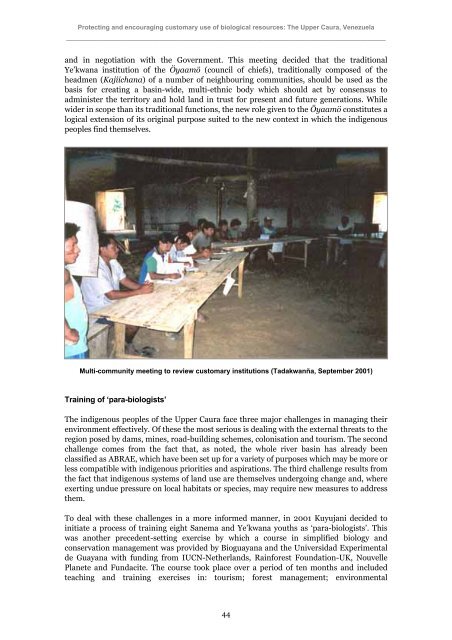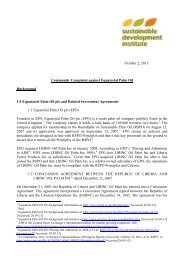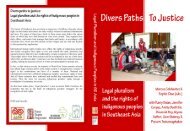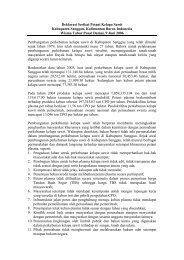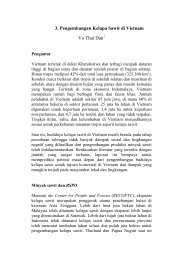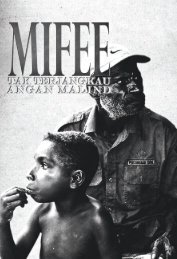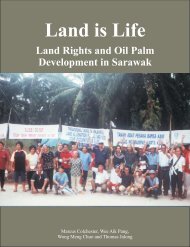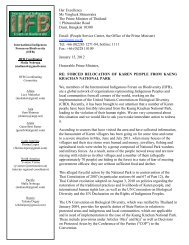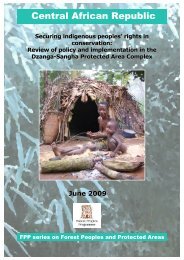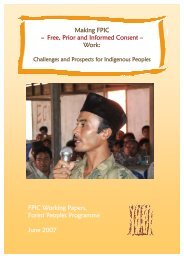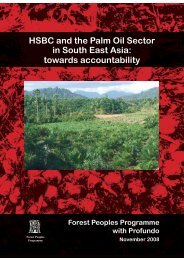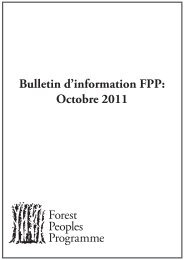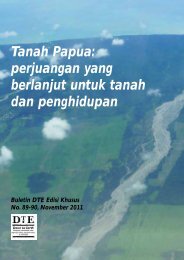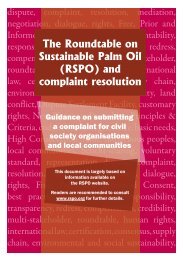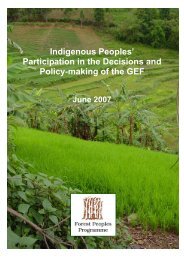The Upper Caura, Venezuela - Forest Peoples Programme
The Upper Caura, Venezuela - Forest Peoples Programme
The Upper Caura, Venezuela - Forest Peoples Programme
You also want an ePaper? Increase the reach of your titles
YUMPU automatically turns print PDFs into web optimized ePapers that Google loves.
Protecting and encouraging customary use of biological resources: <strong>The</strong> <strong>Upper</strong> <strong>Caura</strong>, <strong>Venezuela</strong>_________________________________________________________________________________________and in negotiation with the Government. This meeting decided that the traditionalYe’kwana institution of the Öyaamö (council of chiefs), traditionally composed of theheadmen (Kajiichana) of a number of neighbouring communities, should be used as thebasis for creating a basin-wide, multi-ethnic body which should act by consensus toadminister the territory and hold land in trust for present and future generations. Whilewider in scope than its traditional functions, the new role given to the Öyaamö constitutes alogical extension of its original purpose suited to the new context in which the indigenouspeoples find themselves.Multi-community meeting to review customary institutions (Tadakwanña, September 2001)Training of ‘para-biologists’<strong>The</strong> indigenous peoples of the <strong>Upper</strong> <strong>Caura</strong> face three major challenges in managing theirenvironment effectively. Of these the most serious is dealing with the external threats to theregion posed by dams, mines, road-building schemes, colonisation and tourism. <strong>The</strong> secondchallenge comes from the fact that, as noted, the whole river basin has already beenclassified as ABRAE, which have been set up for a variety of purposes which may be more orless compatible with indigenous priorities and aspirations. <strong>The</strong> third challenge results fromthe fact that indigenous systems of land use are themselves undergoing change and, whereexerting undue pressure on local habitats or species, may require new measures to addressthem.To deal with these challenges in a more informed manner, in 2001 Kuyujani decided toinitiate a process of training eight Sanema and Ye’kwana youths as ‘para-biologists’. Thiswas another precedent-setting exercise by which a course in simplified biology andconservation management was provided by Bioguayana and the Universidad Experimentalde Guayana with funding from IUCN-Netherlands, Rainforest Foundation-UK, NouvellePlanete and Fundacite. <strong>The</strong> course took place over a period of ten months and includedteaching and training exercises in: tourism; forest management; environmental44


